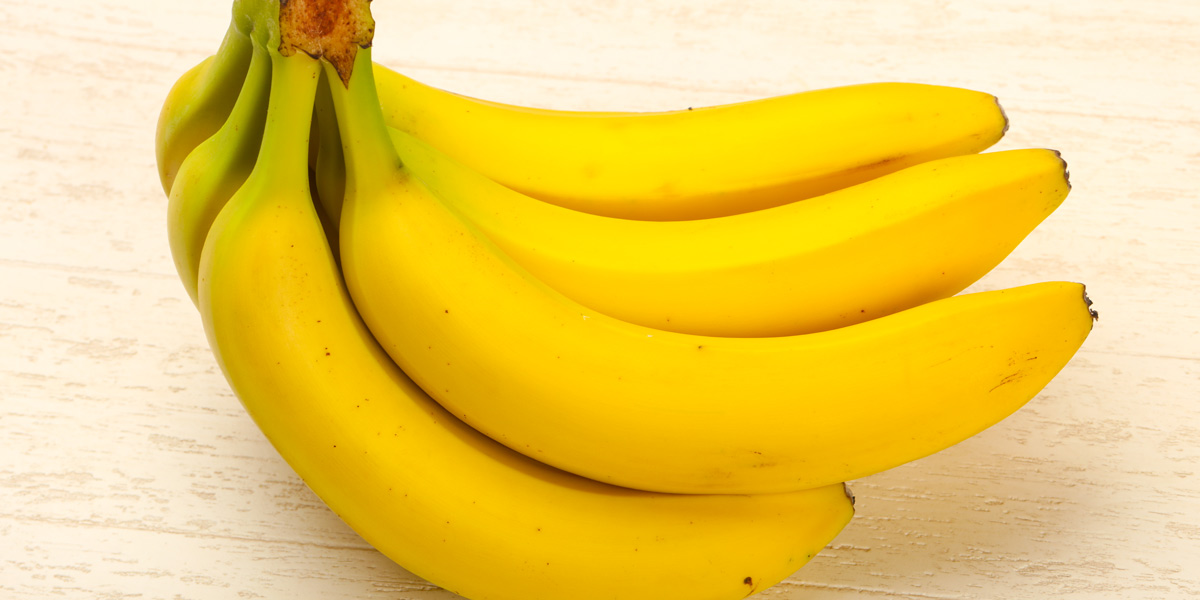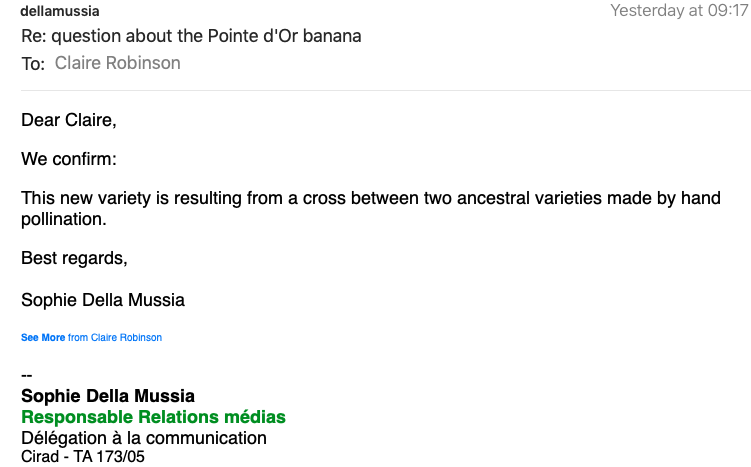
Misleading claim debunked
Earlier this month we published a story reporting that in spite of decades of pro-GMO hype telling us that only GM will save the banana from going extinct due to attack from Black Sigatoka disease, it is non-GMO breeding that has succeeded in producing a variety that is resistant to the fungus.
The new variety of banana, named the Pointe d'Or, can be produced using organic and agroecological production methods and is set to become commercially available in France.
However, a commentator responded by claiming on Twitter that the Pointe d'Or banana was produced using random mutagenesis involving radiation. Radiation-induced random mutagenesis is an early GMO technique, albeit one that is exempted from the EU's GMO regulations due to its supposed history of safe use.
In fact the health effects of eating foods produced with this technique have not been tested. But from the point of view of the plant it has always been problematic, producing large numbers of infertile and deformed plants (see GMO Myths and Truths, Chapter 4, for references) in the process of attempting to find one that grows well and has a useful trait.
To back up his claim that the Pointe d'Or is a product of radiation-induced mutagenesis, the Twitter commentator linked to a web page of the FAO (Food and Agriculture Organisation) describing a banana development program led by the Joint FAO/IAEA (International Atomic Energy Agency) Division of Nuclear Techniques in Food and Agriculture. The program focuses on "irradiating thousands of plantlets with doses of gamma rays or X-rays that cause random mutations" and then screening for one that might be useful in conferring resistance to Black Sigatoka.
We should point out here that the raison d'être of the IAEA is promoting the use of nuclear energy. So we should not be surprised that this agency believes or hopes that the solution to Black Sigatoka is nuking bananas.
The Twitter commentator offered no evidence that the banana developed by CIRAD featured in our article above was the same banana as the one developed in the FAO/IAEA's nuking program. But we thought we should check it out. So we wrote to CIRAD asking them if their banana had been produced using radiation-induced random mutagenesis.
The answer is no, according to their media relations officer Sophie Della Mussia. She explained in an email that the Pointe d'Or banana resulted from "a cross between two ancestral varieties made by hand pollination".

We have no idea why the Twitter commentator attempted to mislead the public by asserting, on the basis of zero evidence, that a naturally bred non-GMO success was in fact the product of radiation-induced random mutagenesis. Surely he couldn't be trying to convince us that this is the only alternative to GM, or to hide the fact that conventional (non-GM) plant breeding is way more successful than GM but without all the ridiculous hype?
Looking at the bigger picture, this episode teaches us that now more than ever, full transparency is needed about which plant breeding techniques were used to develop any given variety. In the cases of certain older varieties, the methods used are shrouded in mystery, but those used in recent years and from now onwards will be discoverable and should be made publicly available in an international database. This will enable organic and agroecological growers to avoid plants and seeds produced in ways that don't meet their standards. It will also ensure that in the case of genetically modified organisms, including gene-edited plants, appropriate regulation can be triggered, depending on the processes used to generate the organism. And finally, it will help us come to a fair judgement about the relative merits of different plant production techniques.










